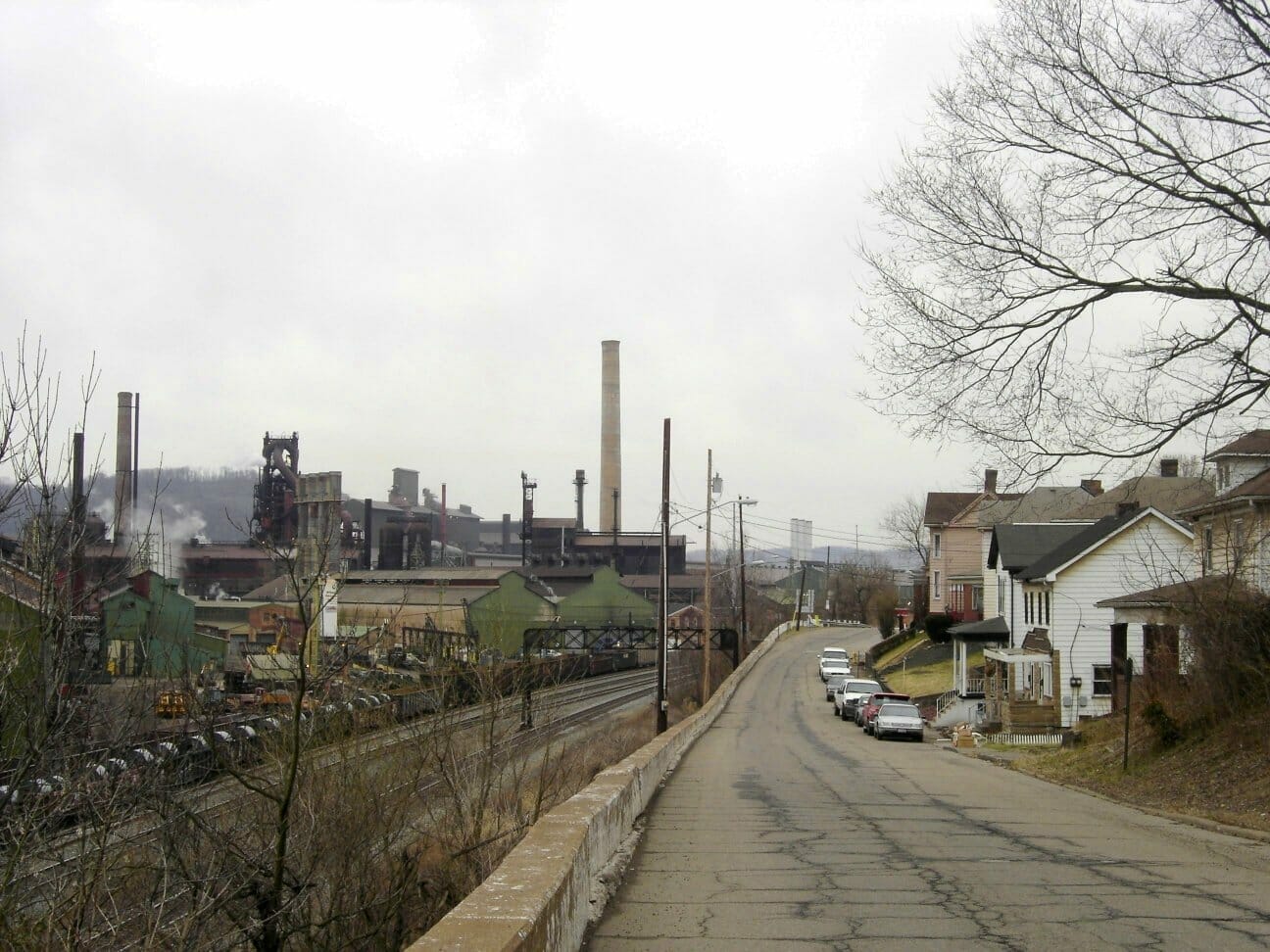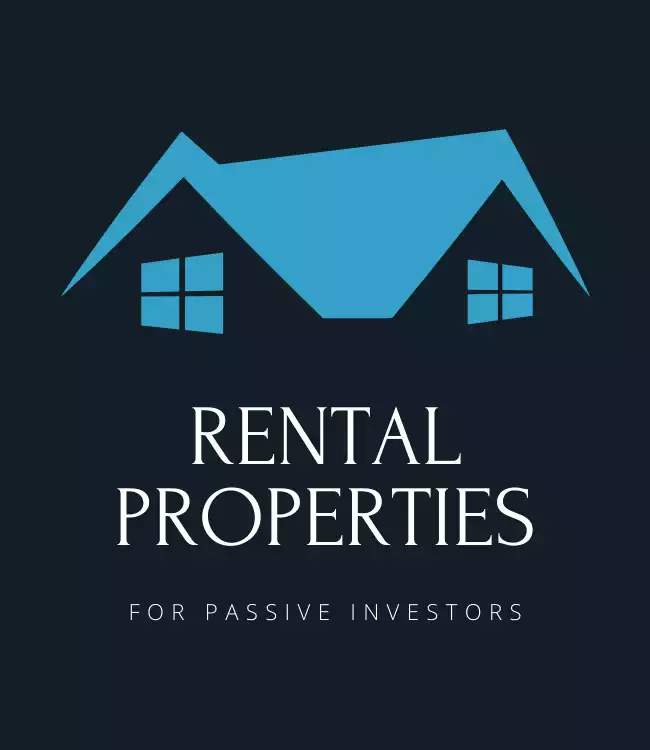Rental properties can be a great source of passive income, but there are a lot of variables. What do you need to know to make sure you buy the right rental properties? Well, doing is the best way to learn anything.
We podcasted about rental properties and wrote about rental properties and built a tool to help you find and compare rental properties. Oh, and Andrew and Laura bought 3 rental properties in quick succession.
Mistakes have been made, and lessons have been learned. Is cash flow the most important determining factor? Do you need to pay a management company? That cuts into your profits after all.
Once you have a set of criteria that a house must meet to be an excellent real estate investment, should you change it? If so, when and why? If a tree falls in your front yard in Georgia, but you live in Hoboken and don’t hear it, did it really fall?
A few years ago LMM went on something of a
During that time, we got lots and lots of emails wanting advice on buying rental properties and lots of people requesting an update on how the properties Andrew and Laura bought were doing. Did they regret buying them? Were they planning to buy more?
We heard you. So here it is, 3 rental properties and 2.5 years later, we’re spilling the tea.
Our Real Estate Investing Philosophy
Buying a
Landlords grow rich in their sleep without working, risking, or economizing.
Tweet ThisOkay, “philosophy” might be a little high falutin when we’re talking about clothes and food but you get the point. We have a checklist for anything we buy, and real estate is no different. These were not things Andrew and Laura knew from the jump; these are things they’ve gleaned over the 2.5 years they’ve owned
Focus on Cashflow
What you are really looking for is a nice home that has excellent cash flow. Cash flow merely is your monthly income minus your monthly expenses. It is essential to predict and plan for as many monthly costs as possible to have the most accurate comparisons.
When calculating the cash flow for a potential investment property, you must include:
- Mortgage payment: Unless you’re a baller and paying cash.
- Expected rental income: Compare similarly priced and sized homes in the neighborhood that are currently renter-occupied to get a sense of the monthly rental income potential of any
rental property you’re considering. - Repairs/Maintenance: Will the home require repairs before being rented, or is it ready for immediate occupancy? How old are major items like roof, HVAC, and appliances?
- Property Manager Fees: Will you have someone manage it for you or will you manage it yourself? Many property managers charge a percentage of the monthly rent and some charge various fees as well for things like finding and screening tenants.
- Insurance: A basic fire policy will ensure the structure and provide moderate personal liability protection.
- Property taxes: Varies widely based on your city. You can find this on the internet or from a local real estate agent.
- Advertising: You may pay for advertising, or it may be included with your property manager fees.
- Utilities: Some landlords pay for utilities like trash or landscaping.
- Vacancy: You have to be financially prepared to pay the mortgage if you have no tenant.
- Homeowner association (HOA) fees: HOAs can provide great amenities for your renters, but they can also eat into your profits and create additional risk depending on how well or poorly the HOA is managed.
No Property Above $125,000
This will vary for everyone, but when you’re buying multiple rental properties, you want individual failures to have minimal impact on your overall portfolio. This number represented that for Andrew and Laura.
This number can shift over time, but you shouldn’t deviate from it unless you find a killer deal too good to pass up. Buying any house is a PIA process. It can take months from start to finish with closing alone generally taking a month. Sure you could buy lots of $30,000 hood houses, but the house has to be worth your time and effort.
Turnkey Only
Turnkey rental property means that the house is move in ready. It doesn’t need any renovations or repairs or updates. Can you get a fixer upper cheaper? Sure you can. Should you?
Well, how much house DIY can you do? And how much do you want to do? How much time do you have actually to do it? Can you afford to buy a
If you’re looking at a project that could take months to complete, you may want to reconsider. Not only will it take a much bigger investment, but it will also delay you from collecting income to start offsetting your investment.
Andrew and Laura can’t do DIY, they don’t want to, and they don’t have time to. And they live in Hoboken, so there aren’t many affordable rental properties within even a few hours of them. Turnkey only.
High Growth, Lots of Jobs
It’s a bad investment to buy a

If you buy in a one-industry town and that industry dries up, not only are the people already living there going to struggle to pay rent, but when they can’t afford the rent and move out or are evicted, your place could sit vacant for months.
Allison Karrels, our long-time listener, and
Keep Your Focus Small
When you’re researching rental properties, you have to research a lot more than just the house. You have to research several things about the area too, the cost of living, average rental price, property taxes, etc.
So why would you want to research dozens of different areas of the country? Andrew and Laura have property in two areas, Indianapolis and greater Atlanta. When they hit on a hot thing, greater Atlanta, they didn’t go out and look for the next hot thing. They bought another property in the same area.
Cost of Doing Business
When you’re house shopping, you can be dazzled by a great deal, the numbers all look good, and you have the 20% you need for a downpayment. But then come closing costs. Damn it!
You’re looking at it from the wrong point of view. Closing costs aren’t an “extra’ expense. They’re part of the cost of acquiring a cash-flowing asset.
Never Sell
You know how we tell you when you’re investing in stocks and bonds through
If you listened to the episode about Matt’s albatross of a condo in New Jersey, you’d know that Andrew told him not to sell it even though the damn place is worthless now then when he bought it eleven years ago and is keeping him up at night.
You’re a real estate investor, not a house flipper. Never sell.
The Dirty Details
Okay, with that out of the way, let’s get down to what you all want to hear. How are those 3 rental properties doing 2.5 years later?
Indianapolis
Andrew and Laura bought this
The house was bought in March 2016 for $56,500. They put 20% down which was $11,300. The closing costs were $3,500. The total cash to close the deal was $14,100.
The mortgage was $315 a month (no I didn’t forget a number) starting rent was $799 a month and a tenant was in place within 30 days. Starting equity was $10,500.
A tenant had to be evicted but not before trashing the place. Oddly they left behind items that were worth more than the back rent they owed — the cost to renovate after the tenant trashing was $5,600. The place has been without a tenant 30% of the time.
Georgia #1
Because initially, Indianapolis was going well, Andrew and Laura bought another property right away. They learned the lesson about buying from some rando though and bought this property through a turnkey solution.
The house was bought in July 2016 for $110,000. They put 20% down which was $22,000. The closing costs were $5,500. The total cash to close the deal was $25,500.
The starting rent was $1,200 a month, and a tenant was in place already. Starting equity was $23,200.
Within months of buying the property, lightning struck and killed a tree in the front yard. It cost $300 to have it removed, and this was the first “landlord expense.”
This property has been a dream. There has never been a tenant issue, and it’s beautiful with a dual level deck overlooking a lake in the backyard. This is where Andrew and Laura plan to ride out the zombie apocalypse.
Georgia #2
Lightning struck (metaphorically although literally as well) with Georgia #1, it proved to be a great investment, so Andrew and Laura decided to buy another home in the area.
The house was bought in September 2016 for $116,000. They put 20% down which was $23,200. The closing costs were $5,100. The total cash to close the deal was $27,000.
The starting rent was $1,175 a month, and a tenant was in place already. Starting equity was $21,900.

As condo owning city dwellers, the proud new owners didn’t know cleaning gutters was a thing and didn’t schedule it to be done which is a problem in pine heavy Georgia.
Major Expenses Over the First 2.5 Years
It takes money to make money, and Andrew and Laura had to put some money in all three rental properties.
Indianapolis
- $5,600 in renovations after a tenant trashed the place
- A 30% vacancy rate
- Total $5,600
Georgia #1
- $563.04 Plumbing
- $400 Pest control
- $300 Landscaping
- $2,500 Renovations
- 1-month vacancy
- Total $3,700
Georgia #2
- $1,400 Roof and gutters
- $300 Plumbing and misc
- Total $1,700
The Profits
Cause ain’t no one buying
Indianapolis
- Starting rent $799, current rent $825
- Cash flow (after mortgage and management fees) $1667.91
- Appreciation $10,143
- Equity built $1,573.18
- Unplanned expenses $5,600
- Net profit $7,784.09
Georgia #1
- Starting rent $1,200, current rent $1,295
- Cash flow (after mortgage and management fees) $15,777.15
- Appreciation $43,644
- Equity built $3672.52
- Unplanned expenses $3,700
- Net profit $59,393.67
Georgia #2
- Starting rent $1,175, current rent $1,175
- Cash flow (after mortgage and management fees) $6,812.14
- Appreciation $38,195
- Equity built $3,600.91
- Unplanned expenses $1,702.35
- Net profit $44,908.05
Total Net Profit
- Cash flow (after mortgage and management fees) $24,257.02 ($808.57 per month)
- Appreciation $91,982
- Equity built $8,846.61
- Unplanned expenses $11,002.35
- Net profit $144,085.81
Our proven, data-driven approach to building a portfolio of income-producing rental properties that perform in the long-term.
Lessons We’ve Learned
Most of the lessons came from the first house in Indianapolis. That’s not bad, a one-house learning curve.
- Researching and comparing rental properties takes a lot of time and effort. Andrew built a tool, Investable, that does the work for you.
- Don’t buy a property from a guy named Bill.
- Supply appliances. People with such low standards that they don’t expect appliances are not the kind of people who will treat your property with respect.
- A good property management company matters almost more than anything else.
- Don’t buy a property that can’t be put into an LLC. This usually comes down to the mortgage company you use. Andrew and Laura have used Northpoint (not a sponsor) and have been more than happy with them.
- Always get at least two quotes for renovations and repairs. Contractors gouge absent landlords. The second quote has usually been less than half of the first.
- Try to avoid evictions. It’s costly to acquire a new tenant, and high turnover is hugely profitable for management companies. Vacancies cost you money.
- You get what you pay for. There are no “steals” out there. At best you can get a good deal.
Andrew and Laura even created a course, Rental Properties for Passive Investors based on their experience bringing three deals to completion using turnkey properties.
The course details their exact approach to find properties (with an actionable plan you can follow) and the foundations of their successful rental business!
You can see it here.
What’s Next?
At the time of recording, February 2019, Andrew and Laura have no plans to buy more rental properties in the near future. We may be at the top of the market right now, heading for a recession soon.
It’s better to hold off for now, keep some money in your opportunity fund. That way when things eventually bottom out, you can scoop up some real bargains be they stocks or your next (or first)
Show Notes
Raspberry Blush Mikkeller Brewing: A delicious sour
New England Style IPA: Matt’s own brew
Investable – Research and evaluate rental properties and build a profitable real estate business using the tool Andrew built.




